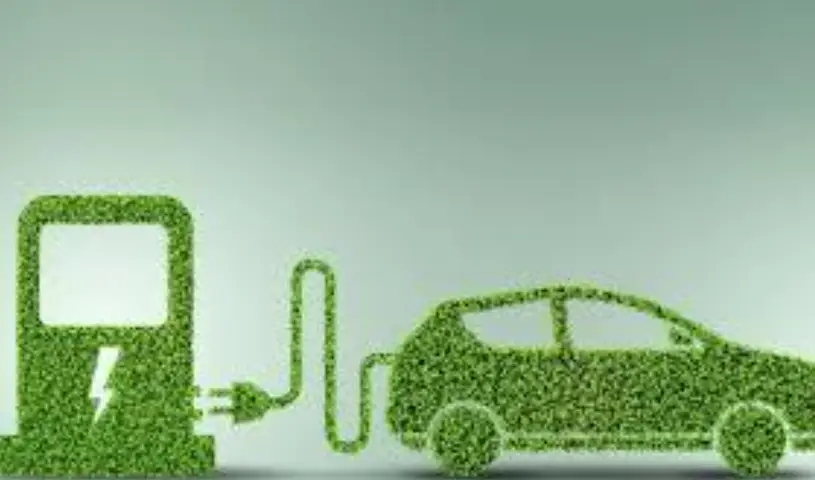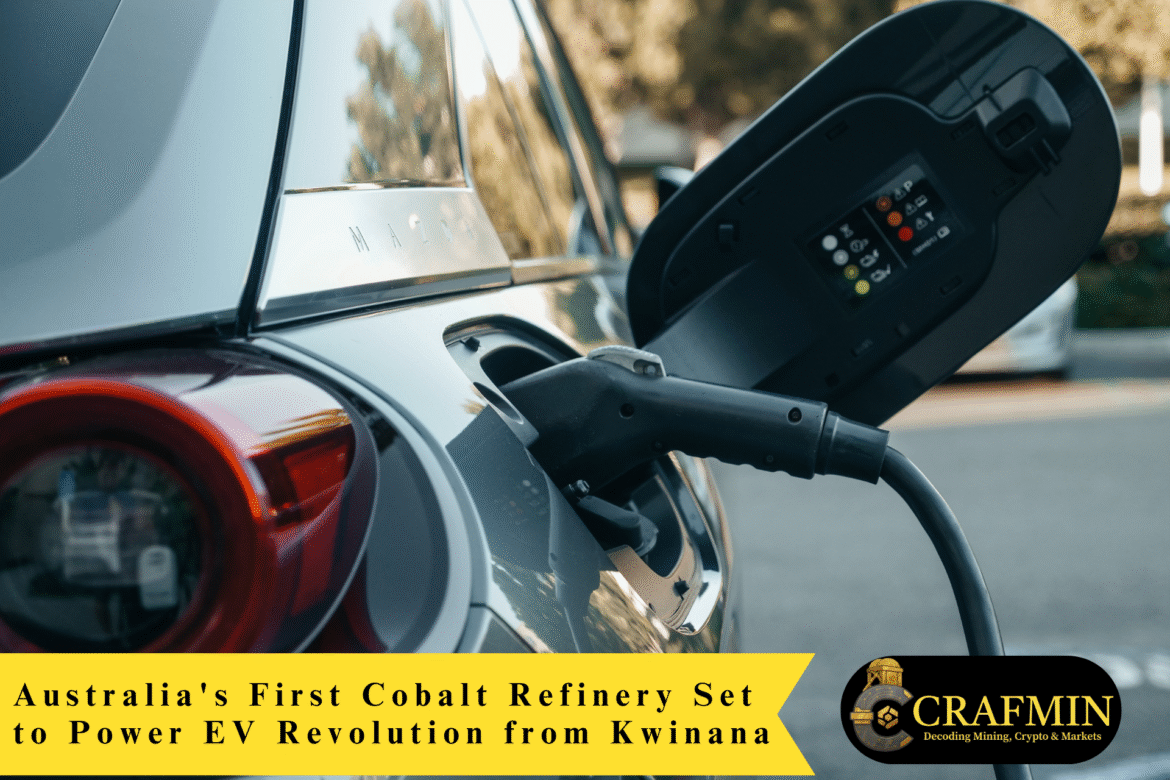Australia is set to make a significant investment in the global clean energy race by establishing the country’s first battery-grade cobalt refinery in Kwinana, Western Australia, with plans already in the works.

Credit: COERU Blog – – COER University
As the global demand for electric vehicles and large-scale battery storage continues to grow, an exciting project is emerging in Western Australia, which could reshape the way Australia engages with the clean energy supply chain. Much of this initiative has been driven by Cobalt Blue Holdings, with local support from Japan’s Iwatani Corporation, and the Kwinana refinery isn’t just a mining milestone — it indicates Australia is ready to move beyond extraction into high-value processing, transitioning Australia from not just a mining nation but to a processor in the global battery supply chain.
From Assets to Assets
The proposed facility has been designed to produce up to 20,000 tonnes of cobalt sulphate on an annual basis – enough to run over two million electric vehicles (EVs) per year. This type of output creates Australia as a major supplier of refined cobalt outside of China, and would be a major shift for Australia, an exporter of cobalt-rich ores without any value-add on shore.
“This marks a critical evolution for Australia,” a Cobalt Blue spokesperson said. “We’re no longer simply exporting the dirt — we’re building the future, right here.”
Kwinana Eyes Become a Battery Processing centre
With Albemarle Ltd. and Lithium Australia Ltd. now refining lithium in the FAA, Kwinana Refinery is quietly becoming a key part of WA’s battery ecosystem. Now that lithium refineries can add cobalt to the mix, this implies the region is not only helping to support the clean energy transition but is actually driving it. Armed with the opportunity of cobalt refining in its industrial mix, the precinct is well on track to become a fully dissolved integrated critical minerals precinct.
The refinery will primarily rely on feedstock from Cobalt Blue Holdings Ltd.’s (Cobalt Blue) Broken Hill project in New South Wales, one of Australia’s largest undeveloped cobalt deposits, but it is also being designed to process imported cobalt hydroxide from leading cobalt producing nations across Africa and the Southeast Asian region, which enables wider strategic partnerships.
A Global Strategic Move
As electric vehicle acceptance accelerates globally, cobalt supply chains are becoming more strained, particularly amid ethical sourcing concerns from the Democratic Republic of Congo and China’s dominance in cobalt refining.
Enter Kwinana.
With transparent supply chains Refinery, rigorous ESG frameworks, and Australia’s strong geopolitical standing, the project offers a compelling alternative for Western automakers seeking to diversify. It also aligns neatly with the requirements of the US Inflation Reduction Act, enhancing Australia’s eligibility for EV-related tax incentives in the American market.
“This could very well be a pivotal shift,” said Associate Professor Gavin Mudd, an environmental engineering expert from RMIT. “It’s not just about cobalt — it’s about energy security, responsible sourcing, and industrial sovereignty.”
Where the Project Stands Now
| Project Milestone | Status |
| Feasibility Studies | Completed – Q1 2025 |
| Final Investment Decision | Expected – December 2025 |
| Construction Start | Early 2026 |
| First Production | Late 2027 (subject to approvals) |
| Target Output Capacity | 20,000 tpa cobalt sulphate |
Environmental approvals and funding discussions are currently in full swing. Government backing through facilities such as the Critical Minerals Facility and the Northern Australia Infrastructure Facility (NAIF) is also under active consideration.
Also Read: South Africa to host two flagship Blockchain Events in 2025
Local Jobs, Global Impact
The project is tipped to bring in over 500 new roles — from engineers to plant operators — offering a real boost to the local economy and breathing new life into WA’s industrial belt.
The project also supports WA’s Future Battery Industry Strategy, a roadmap aimed at transforming the state from a raw materials exporter to a value-adding clean-tech leader. Importantly, sustainability is built into the project’s DNA — with plans for renewable energy integration, water recycling, and advanced waste systems to help meet net-zero emissions targets.
Final Word: Australia Steps into the Fast Lane
Australia has long been rich in critical minerals Refinery, but slow to refine and capture the full economic value. That’s now beginning to change.
The Kwinana cobalt refinery is more than just a processing plant — it’s a statement of intent. A declaration that Australia is ready to not only mine the minerals of the future but also shape the industries they enable.
In a world where cobalt is fast becoming the lifeblood of electrification, Australia is finally taking charge of its own destiny — and turning potential into power, at home.

